Horizon State has leveraged blockchain’s immutable distributed ledger technology to redesign the way that opinion is solicited, votes are cast, and collaborative decisions are made.
Horizon State reshapes interactions between the public sector, wider businesses and society. Its friction-less trust services platform enables digital transformation via direct relationships and decentralized participation without intermediary involvement. Their platform provides accountability and transparency for citizens and communities to deal direct with community leaders, NGO’s, councils or government on important matters such as policy, budget, elections, taxes, political donations, rates, fundraising, social challenges and endeavors.
CEO Oren Alazraki has been an adviser to MiVote since early 2017 and oversaw the spinoff of the blockchain technology from MiVote and the inception of Horizon State from its infant idea and creation of its whitepaper to today. Before joining Horizon Oren held a number of General Management roles with Datacom, one of Australasia’s largest professional IT services companies with over 5,200 people and $1.2bn revenue. A colleague went on record saying “Oren is one of the most passionate and visionary people I have worked for or with. His energy and drive is inspiring and it makes you want to follow him.”
We caught up with Oren and were able to ask him a few questions.
Horizon State is clearly at a major transformational stage. What type of strategic partnerships are you looking for?
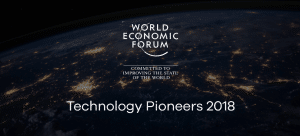 I recently returned from Tianjin, where I have attended the Annual Meeting of the New Champions (AKA Summer Davos) at the World Economic Forum event to receive the 2018 Technology Pioneers award. We have started our journey to transform engagements between citizens and governments 12 months ago, but only during the WEF event we truly realized the immense scale and how critical it is that we all get this right. We are looking for meaningful partnerships that span far beyond technology. Our research team has shared incredible insights with selected partners and customers on our approach to handling local policies and improving community engagements. We are looking to increase collaboration with academia, policy leaders and governments to define a new protocol for public engagement.
I recently returned from Tianjin, where I have attended the Annual Meeting of the New Champions (AKA Summer Davos) at the World Economic Forum event to receive the 2018 Technology Pioneers award. We have started our journey to transform engagements between citizens and governments 12 months ago, but only during the WEF event we truly realized the immense scale and how critical it is that we all get this right. We are looking for meaningful partnerships that span far beyond technology. Our research team has shared incredible insights with selected partners and customers on our approach to handling local policies and improving community engagements. We are looking to increase collaboration with academia, policy leaders and governments to define a new protocol for public engagement.
How would you describe your pipeline?
We have a targeted sales approach; we don’t publish online brochures and have a strong preference for engagement at the right level . We don’t hold a register of hundreds of customers and inflate our pipeline. We have a small number of potential customers, each with high volume of users and a meaningful positive social and financial impact. We are typically looking for high brand / value organisations with high volume of users.
You are speaking at Crowdsourcing Week’s global conference in Washington D.C. in October. What’s the theme of your sessions and what do you want to impress on delegates?
I’m presenting in two sessions: “Applying Agile Governance in a Decentralized World” and “Accountable Leadership in a Decentralized World”. Our world is now characterized by the unprecedented advances in technology transforming the way individuals and groups across society live, work and interact. This new era of digital communication requires a new set of principles, protocols, rules and policies to accelerate the positive and inclusive impacts of these technologies, while minimizing or eliminating their negative consequences (e.g. social media).
On the subject of social media, you don’t appear to engage through it much. Have you specific reasons for not getting involved, or was it more a case of simply never getting round to it?
Our world is super-connected with everyone constantly messaging everyone else, even while being on holiday. Our own media is considered the least trusted organisation and an average of 63% of people not knowing how to tell good journalism from rumor or falsehoods. This is scary and concerning. I like to retain a level of privacy given my public exposure. I don’t like self-promotion, and don’t feel the need to take a selfie every 10 minutes and share with the world what I had for dinner.
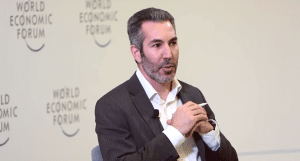 I do enjoy meeting and talking to people, I value their feedback, and the time they spend with me. This is why I believe that now, even more than ever, we should value meaningful engagements over messaging. I maintain professional networks via LinkedIn and the World Economic Forum network but equally enjoy picking up the phone occasionally and hearing a voice on the other side of the line.
I do enjoy meeting and talking to people, I value their feedback, and the time they spend with me. This is why I believe that now, even more than ever, we should value meaningful engagements over messaging. I maintain professional networks via LinkedIn and the World Economic Forum network but equally enjoy picking up the phone occasionally and hearing a voice on the other side of the line.
Your LinkedIn profile describes your education as a Brown Belt from the University of Life. Here’s a two-part question for you on education.
- What is your opinion of the traditional structure of education and its relevance to the rapid development of disruptive and decentralized new ways of doing things?
- What is important for the next generation of business talent to be taught? What else should they try to learn outside formal education?
I’m an avid adventure racer who practiced Karate and MMA for a number of years. I consider myself at a brown belt level in terms of education, as it is extremely hard to get to black belt. I believe there is always something for us to learn either from a book, from each other, from the surrounding environment and certainly the wealth of knowledge available at our fingertips.
In most industries we see rapid advancements in disruptive technologies such as robotics and AI yet the basic elements of business creativity are not yet recognized as formal curriculum in most school. I believe children in schools should be taught entrepreneurship, leadership, learn how to manage a bank account and understand basic accounting, learn the mechanics of contract management, the importance of design thinking, the engineering and problem solving that comes with software development, and the basic elements of negotiations – how to trade ideas on your terms while having the other party equally enjoying rewarding benefits.
We have an obligation to prepare our children to manage and lead a new world of possibilities and acquire new set of skills so that they could better adapt and respond to difficult situations. For those who have not yet seen Ken Robinson’s TED Talk about schools and creativity – I strongly suggest you do!
In many major cities around the world we see a move to greater involvement and transparency by officials with residents/electorates on decision-making and spending civic funding. It appears to create opportunities for Horizon State. Are there any examples of involvement with civic authorities you can share with us?
We recently met with a ministry who was required by law to share a policy with the public and receive expressions of opinions within 30 days. They were surprised to receive over 500,000 responses in such a short time-frame. This is a real issue. Governments and local authorities are interested in greater transparency and promote inclusiveness for better decision making, yet do not have the tools and processes to accommodate such agility.
We are currently working with prospective customers and partners to develop an engagement framework whereby trust, transparency and the process of obtaining constructive opinions are coded into the platform and not just enforced by way of good process. When engaging customers we typically conduct a socio-economic benefit analysis to measure the positive impact when evaluating our technology. Our goal is to provide accountability and transparency for citizens and communities to deal direct with community leaders, NGO’s, councils or governments on important matters such as policy, budget, elections, taxes, political donations, rates, fundraising, social challenges and endeavors.
Horizon State is building a unique system that does not yet exist, for a global market. Hence the ‘Technology Pioneers’ award from the World Economic Forum.
A valuable aspect of crowdfunding is that in addition to the funding raised it can create a supportive crowd of enthusiasts. People from all around the world supported Horizon State’s ICO. Do you consult with them on anything, as an overall group or perhaps more selectively?
We consider our community as an integral part of the company. Our company is privately held company yet acts like it was publicly listed. Over 6,000 people invested in Horizon State which means crowdsourcing is something we had to learn to be good at. We are currently maintaining a non-stop 24/7 dialogue with our community of 4,500 active supporters via Telegram and continuously learn from our community on all matters. They provide critical product feedback, generate sales leads, assist with marketing and promotions, assist with graphic design, and even QA some of our key strategies. I would strongly encourage other companies to consider crowdsourcing of ideas and even projects.
We know you take your running seriously. Are you able to switch off from work issues, or maybe you find your subconscious is able to explore other less obvious solutions?
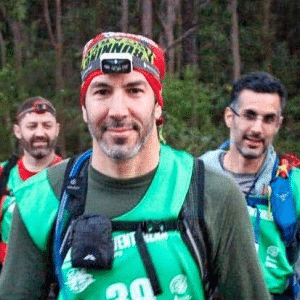 I enjoy listening to music while working, running, mountain biking, kayaking, and many other things. It has a calming effect on me. But what I really love is a great adventure. The kind of adventure that makes your heart pump uncontrollably because you are about to take the first step into the unknown. The kind of adventure where everything you planned or fail to plan will come back to haunt you at some stage, and your dependency on your team and belief in yourself is critical.
I enjoy listening to music while working, running, mountain biking, kayaking, and many other things. It has a calming effect on me. But what I really love is a great adventure. The kind of adventure that makes your heart pump uncontrollably because you are about to take the first step into the unknown. The kind of adventure where everything you planned or fail to plan will come back to haunt you at some stage, and your dependency on your team and belief in yourself is critical.
I have learnt a lot from these difficult physical and mental situations and find a strong connection between my performance as business leader and my athletic performance. Just like in any adventure race (or business), sometimes all we need to do is focus on the next checkpoint, form a good strategy, and persevere through the bad weather.
Oren, thank you for sharing your valuable insights with the Crowdsourcing Week community, and congratulations again on the 2018 Technology Pioneers award.
It’s not too late to be at Oren Alazraki’s sessions at the CSW Global 2018 conference in Washington D.C. 24-28 October. A few tickets remain available. Horizon State is a conference Principal Partner.
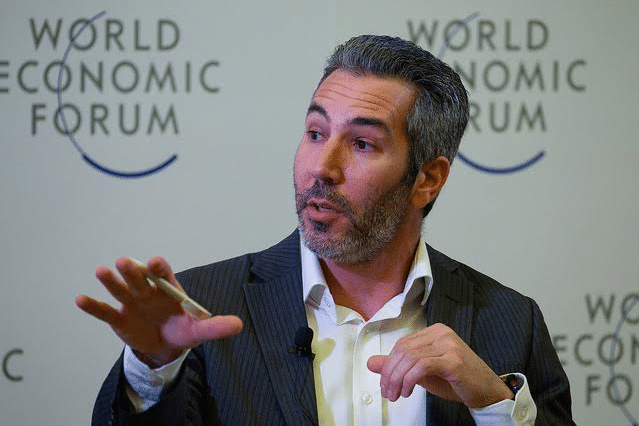
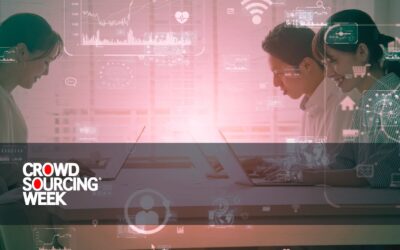
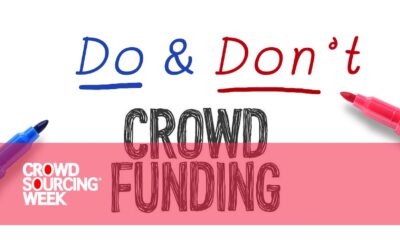
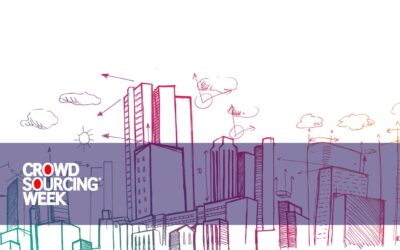
Horizon state token are a recent winner of the world economic forum 2018. Hst community just as passionate and we welcome all into our Telegram group. So many business opportunities for a real world use token. From charity app to Dpi in India with millions of members ready for daily use.